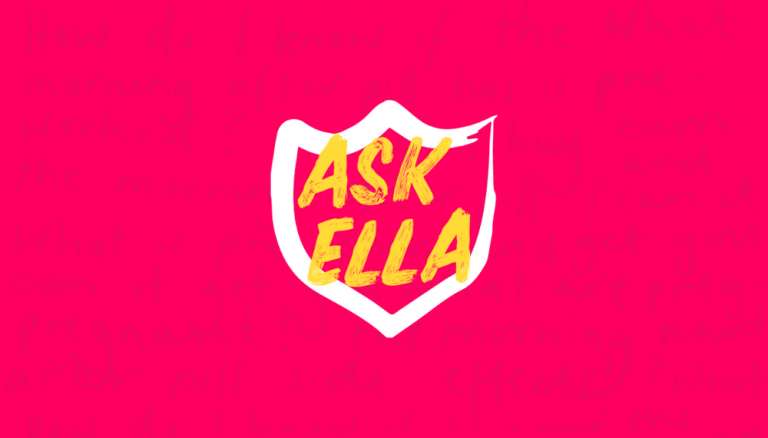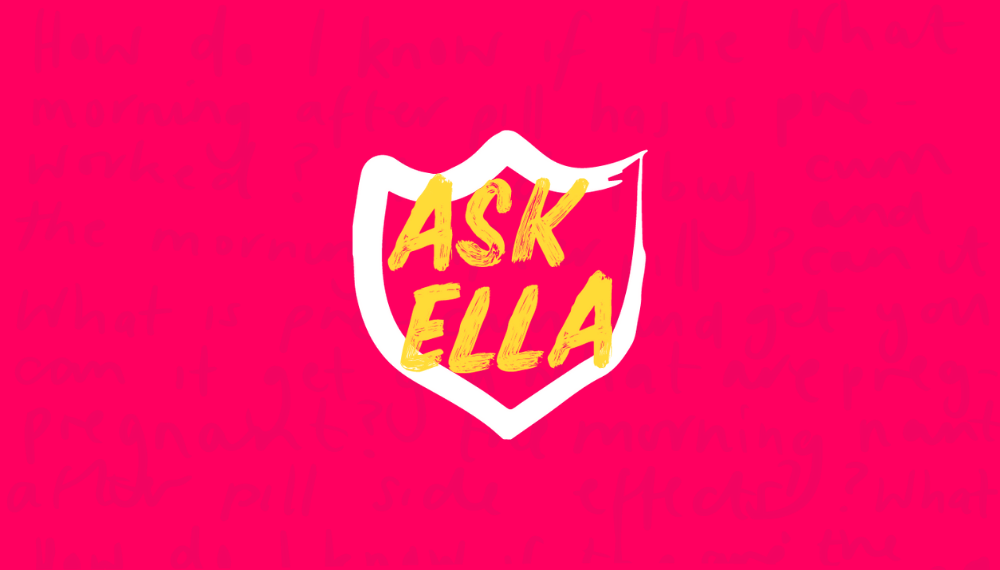So you’ve taken the morning after pill and you’re sure your period should have come by now, but there’s still no sign of it. What could it mean? Are you pregnant?
While your mind will probably jump straight to pregnancy, a late period doesn’t necessarily mean that’s the case. It’s a bit more complicated than that, especially if you’ve recently taken the emergency contraceptive pill.
A lot of you have been asking us if the morning after pill can delay your period, so we spoke to Julia Hogan, Nurse Consultant* for Marie Stopes UK, to get an expert opinion.
Does the morning after pill normally delay your period?
We know that a late period after taking the morning after pill is the last thing you want, but it doesn’t necessarily mean the morning after pill hasn’t been effective.
“The morning after pill can delay your next period but does not always do so. Your next period can even be early,” says Julia, “However, if your period is more than seven days late, you should do a pregnancy test.”
Should you be worried if the morning after pill delays your period?
“No, you shouldn’t be worried if the morning after pill delays your period as this can be a side effect,” says Julia.
“There are many reasons why your period might be delayed by more than seven days,” she continues. “Some people have irregular cycles so it can be hard to predict when the next period is due, but stress and weight loss can also affect the menstrual cycle. Other causes include menopause, polycystic ovaries, thyroid issues and diabetes.”
If your periods are irregular, or you’ve missed one altogether, it could be down to a range of factors. Find out more about why you might miss your period here.
Please speak to your health care provider if you have any questions or concerns.
How long does the morning after pill typically delay your period?
“Typically the morning after pill will delay your period by a day or two, however, it can be up to one week,” says Julia.
We know there’s a lot riding on this one small pill and you’re probably feeling anxious if your period is late. There are a number of reasons this could be and it doesn’t necessarily mean anything as your menstrual cycle can vary from month or month.
We would, however, always advise that you speak to a healthcare professional like a pharmacist or a GP if you’re worried about anything, even if it’s just to put your mind at ease.
If your period is delayed for more than 7 days or is unusual in any way then you should seek medical advice from your healthcare provider.
If your period is later than seven days, does it mean you're pregnant?
“If your period is later than seven days it does not necessarily mean you are pregnant, but you should do a pregnancy test to rule it out,” says Julia.
Most pregnancy tests will be accurate 21 days after the unprotected sex took place, or from the first day of a missed period.
However as mentioned above, factors like stress, sudden weight loss, changing or coming off your contraceptive pill and changes in schedule can all have an affect on your menstrual cycle.
Did you know different phases of the menstrual cycle make you angry, horny, hungry? Find out more about your menstrual cycle.
What should you do if you think you might be pregnant?
We know that trying to make a decision about an unplanned pregnancy is incredibly difficult, but there are many people who can help you make an informed decision.
“If you want to continue with the pregnancy then you will need to ring your GP so you can book in to see a midwife,” says Julia.
“If you need help to consider your options, you can contact Marie Stopes UK on 0345 300 8090 and book a telephone appointment with one of our counsellors who will talk you through your options . If you are sure that you want an abortion, the team will book you into a telephone consultation to start the process,” she continues.
What should you do if you think you might be pregnant during lockdown?
Dealing with the possibility of an unplanned pregnancy can be scary enough at the best of times, but we understand it could be even more worrying during a pandemic.
Don’t panic though, because essential health care services are still operating and will still be able to help you.
“If you think you may be pregnant during lockdown, you have options available to you, depending on whether you want to continue with the pregnancy or not,” says Julia, “during COVID-19, as much of this will be done remotely as possible to protect you.”
Worrying about a delayed period is rough, but there are many different reasons why it might not have come yet – many of which are not a cause for concern.
The length of your menstrual cycle can vary from month to month and things like stress and different sleeping patterns can also have an impact. As the morning after pill works by delaying ovulation, it makes sense that it may also push back your period by a couple of days.
Don’t jump to any conclusions and see if that pesky period arrives. Remember that you have options no matter what happens – it’s your body, your choice.
If you’ve taken the morning after pill and would like to share your experience, please do so by clicking the link below.
ellaOne® 30mg film-coated tablet contains ulipristal acetate and is indicated for emergency contraception within 120 hours (5 days) of unprotected sex or contraceptive failure. Always read the label.







